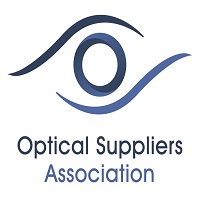General News
Yesterday’s World Sight Day UK Public Perception on sight
Yesterday’s World Sight Day UK Public Perception on sight
To mark World Sight Day (10th October), Apellis reveals results from a large-scale survey uncovering the UK public’s perception of and attitude towards sight loss.
SUMMARY
The survey of over 2,000 UK adults, commissioned by global pharmaceutical company Apellis, revealed that:
- Over half of UK adults expect to experience sight loss in the next 10 years
- However, more than 29% of those surveyed do not get regular eye tests and 34% would wait more than a month to seek medical help
- Over 50% of adults surveyed feel it would be difficult to prevent sight loss in those aged over 70 despite available treatments and support
- 90% of adults ranked vision as the most essential sense
New survey reveals over half of UK adults expect to experience sight loss in the next 10 years.
- Yet more than one in four (29%) of those surveyed do not get regular eye tests and one in three (34%) would wait more than a month to seek medical help if they experienced problems with their sight.1
- Over half (51%) feel it would be difficult to prevent sight loss in those aged over 70 despite treatments and support available.1
- Despite this, vision is ranked as the most essential sense; with nine in ten people (90%) listing it as more important than hearing, smell, taste, or touch.1
The new survey of more than 2,000 UK adults, commissioned by global pharmaceutical company Apellis, reveals that despite an overwhelming majority of adults 90%) valuing sight as their most important sense, one in two people (53%) expect to experience some form of sight loss in the next ten years.1 Not surprisingly, this figure is more pronounced in the over 50s, with nearly three in five (59%) expecting to experience sight loss in the next decade.1
The scale of sight loss is also being underestimated, with one in two (53%) of those surveyed believing one million people or fewer in the UK are affected,1 whereas in reality, the figure is double, with two million people affected by sight loss in the UK. 2
As we know Sight loss can be caused by a wide range of medical conditions, including age-related macular degeneration (AMD), cataracts, diabetic retinopathy, and glaucoma, but should not be accepted as an inevitable part of ageing.2
Charles Colquhoun, CEO at the Thomas Pocklington Trust, a national sight loss charity, said: “Given some causes of sight loss have the potential to progress in just a few weeks, it is concerning that one in three people would wait over a month to seek help. We know through our work that the impact of sight loss can be profound, including the physical challenges in day-to-day life but also feelings of loneliness and depression. Sight loss is expected to rise significantly by 2050 in the UK due to rising rates of diabetes and an ageing population, so it is a problem we simply cannot ignore. More dialogue and awareness, as well as regular eye checks, are vital.”
Ed Holloway, Chief Executive at the Macular Society, said: “Sight loss can be devastating for those affected, as well as their families and loved ones. We see first-hand the physical and emotional impact a diagnosis of macular disease can have on a person’s wellbeing. The fact that so many people worry about and fear sight loss, highlights that more needs to be done to increase awareness of eye health and the importance of regular eye checks. It is also important to ensure that individuals are made aware of the support available, as this can significantly improve their ability to cope with the emotional impact of sight loss and help them continue to live as independently as possible.”
This sentiment is reflected by the survey results, with nearly two in three (63%) of those polled stating that if they were diagnosed with a condition causing sight loss, they would be worried, followed by scared (57%), anxious (56%), hopeless (31%) and isolated (30%).1 Other concerns people had were losing their ability to drive (38%), not enjoying life in general (37%) and being unable to care for themselves or a partner (33%).1
The survey, conducted by Apellis, sought to identify the different attitudes towards and perceptions of sight loss, as well as to open up discussion. Results showed that currently only one in four people (27%) speak to family and friends over the age of 70 about sight loss often and one third (34%) reported that they never talk about it at all.1
Paul Cox, General Manager at Apellis, said: “Anyone receiving a diagnosis of sight loss will tell you it can be life changing. These results show us that although sight is regarded as the most important sense, a significant proportion expect some form of sight loss in their future or as they get older – which need not be the case. The good news is that sight loss is not an inevitable part of ageing and support is available. That’s why we’re working hard to alleviate the burden of sight loss.”

























